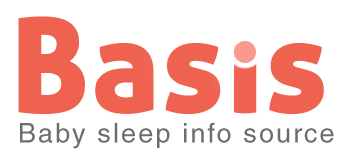Electronic sleep devices
Electronic sleep devices
Technological developments now allow you to monitor everything from respiratory rate to temperature to heart rate to blood oxygenation and more.
Infant electronic sleep devices are a relatively new market. Companies offer increasingly smart and wearable devices designed for monitoring babies’ physical data or changing their sleep environment. The devices are aimed at increasing uninterrupted sleep or reassuring parents of their infant’s safety. However, these devices are not medically certified, and there are so far no studies suggesting they might protect against SIDS. They may also bring a false sense of security which could result in less attention to the baby and a higher SIDS risk.
What sorts of devices are out there?
Infant Sleep Machines
Infant sleep machines (ISMs) or noise machines produce an ambient sound to disguise background sound in the infant’s sleep environment and bring longer and quieter sleep. Whether or not this works, research has found that ISMs are capable of reaching sound levels that can damage infant hearing. However responsible use of these machines and following manufacturer guidelines eliminates this risk.
Biological Monitors
Biological monitors can measure a wide range of infant measurements, but the most common ones are monitoring breathing and heart rate. These monitors come in different shapes and sizes. Some are even wearable, for example as socks or gowns. Studies indicate that biological monitors likely do not help prevent SIDS in healthy term infants. However, they may be helpful for vulnerable babies, for example preterm infants. They may also be used for babies who have undergone heart surgeries or who have been diagnosed with respiratory problems. It is recommended you consult a medical pracitioner for advice if you are considering using a biological monitor on your baby.
Audio and Video Monitors
Audio and video monitors are usually used to relay infant cries and breathing noises. In these respects the technology is effective, but may mean you are happier to leave your baby in a room on their own, which is a SIDS risk factor. The benefits of close contact with their parents for babies cannot be replaced by baby monitors. However, overall there is little research on the effects of using baby monitors.
As with any technological device, the potential remains for the battery to run out or power source to disconnect.
See our Health Practitioners pages for more detailed information on infant electronic devices. The Consumer’s Association Which? also offers reviews of baby monitors.
